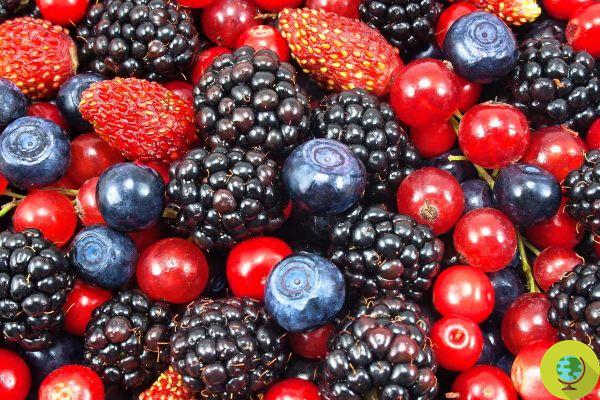
Flavanols lower blood pressure and therefore a diet rich in these molecules is a panacea for our cardiovascular system
Don't store avocado like this: it's dangerousFlavanols lower blood pressure and therefore a diet rich in these molecules is a panacea for our cardiovascular system. The results of the study, at the University of Readings (UK), confirm the importance of eating foods such as apples and berries, but also tea and cocoa, to combat hypertension.
The study was conducted by analyzing the diets of over 25.000 people in Norfolk, UK, and comparing it to their blood pressure trends. Unlike similar researches, however, this work did not collect information on the basis of statements provided by the volunteers but objective measurements of the level of flavanols were made using nutritional biomarkers present in the blood.
With surprising results: those who took 10% less flavanols had a blood pressure between 2 and 4 mmHg lower and the effect appeared more pronounced in those suffering from hypertension.
"What this study offers us is an objective discovery on the association between flavanols, present in tea and some fruits, and blood pressure - explains Gunter Kuhnle, who led the study - This research confirms the results of previous studies of dietary intervention and shows that the same results can be achieved with a habitual diet rich in flavanols. In the British diet, the main sources are tea, cocoa, apples and berries".
The results, in fact, disregard the natural variability of content that may exist in food.
"Contrary to self-reported dietary data, nutritional biomarkers can address the enormous variability in food composition - concludes Kuhnle - We can therefore confidently assign associations that we observed when taking flavanol ".
According to the authors, therefore, if the general population increased the consumption of flavanol, there could be one overall reduction in the incidence of cardiovascular diseases.
Chocolate, friend of the heart: eating a little every day prevents arrhythmia
"This study adds key information to a growing body of evidence supporting the benefits of dietary flavanols for health and nutrition," adds Hagen Schroeter, another co-author of the research.
The molecules, which belong to a larger group of aromatic compounds and which are also present in the solid part of the grape (skin, seeds and stems), had in fact been the subject of other previous studies which had confirmed their also beneficial effects on type 2 diabetes, among which one considered among the main ones published in 2013 in Diabetes Care.
The work, funded by the Medical Research Council and Cancer Research UK, was published in the Nature group's Scientific Reports.
Sources of reference: University of Readings / Scientific Reports / Diabetes Care
Read also:
- The best (and worst) diets for 2020 according to experts
- Losing weight with the Shibboleth Diet? How it works, what to eat and contraindications


























